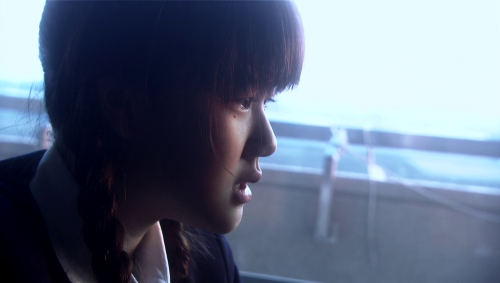 All About Lily Chou-Chou (2001)
All About Lily Chou-Chou (2001)Shunji Iwai's perfectly performed, meticulously edited chronicle of adolescent tragedy and obsession was adapted with the aid of fans from his semi-interactive online novel and its message board. Dysfunction and fixation on an enigmatic popstar are the commonalities of students suffering and inflicting abuse in an increasingly anomic Tokyo suburb. As social commentary, interpersonal introspection, collaborative creation, performative improvisation, and early cinematic application of digital video, this is nearly a flawless picture, and one of the century's first cinematic masterworks. For a more accurate title, just subjoin 's Fans.
 Don't Laugh at My Romance (2007)
Don't Laugh at My Romance (2007)Long, wide, lingering, static and tracking, and master shots characterize Nami Iguchi's deliberately paced adaptation of Naocola Yamazaki's novel about the ardent but semi-requited love affair between a student (Kenichi Matsuyama) and an art teacher (Hiromi Nagasaku) who's nearly twice his age, and who harbors plenty of surprises. From curious circumstances, Iguchi mines lodes of humor, bittersweet pathos, and inchoate nostalgia, all of which feels remarkably believable. Yu Aoi spicily steals scenes as a moody tomboy who's as irrationally smitten with Matsuyama's schoolmate as he is with his aging instructor.
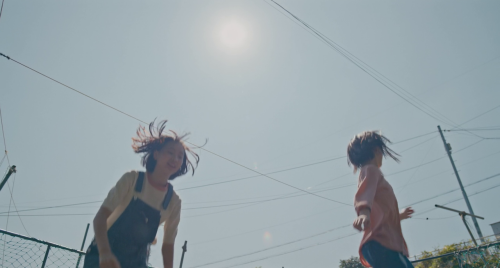 House of Hummingbird (2018)
House of Hummingbird (2018)A preteen middle child (Ji-hu Park) from a working-class family contends with parental neglect, fraternal abuse, and constant disloyalty, struggling to connect with anyone in Seoul, 1994. Understated performances and direction by documentarian Kim Bora secure a moving verisimilitude that conveys volumes about the frustrations of marginal life.
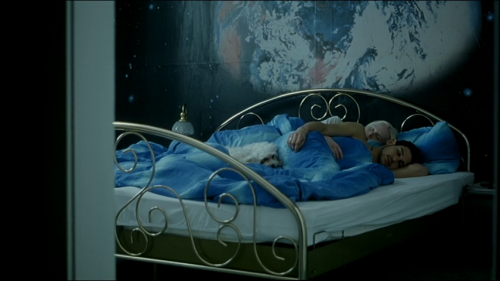 Antares (2004)
Antares (2004)This roundly, wrongly maligned drama selectively focuses on the peripherally related sexual lives of three disastrous people residing in the same apartment complex. Its censorious treatment west of Central Europe proves that Anglophones needed a few years to catch up with Gotz Spielmann's idiomatic approach to contemporary drama.
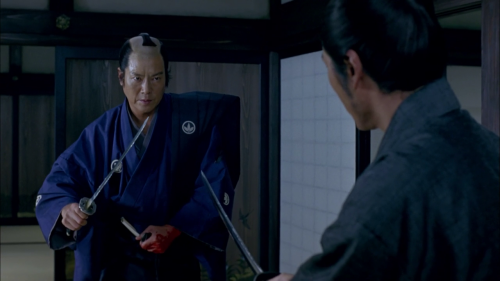 Sword of Desperation (2010)
Sword of Desperation (2010)Hoping to die by seppuku for a good deed, a widowed master swordsman (Etsushi Toyokawa) in the court of a daimyo (Jun Murakami) during the middle Edo period dispatches his lord's ruinously influential concubine (Megumi Seki), only to be disposed as an eventual pawn in the aristocracy's intrigues with virtue and vituosity as his only salvational assets. Comfortably meditative during its first few acts, this unusual treatment of penance and redemption turns surprisingly, satsifyingly bloody during its final half-hour.
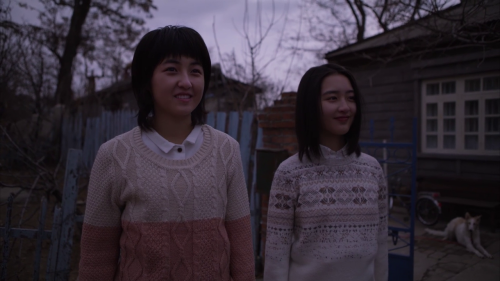 Last Letter (2018)
Last Letter (2018)In the wake of her sister's suicide, a librarian (Xun Zhou) extemporarily poses as her sibling at her graduating class's tridecennial reunion, attracting the attention of, then correspondence with an author (Hao Qin) who's pined for the deceased since their split over a quarter-century prior. Revelations planted like land mines explode expectations and predictions every 10 to 15 minutes of Shunji Iwai's charmingly humorous, powerfully poignant drama, which draws from his characters' pasts to illustrate how they've come to the present. Iwai's novel was handily transposed to a Chinese setting where his floating, rotating camera seems at first almost incongruous, and enacted passionately by a cast who span that cultural divide for the universality of heartbreak and grief. A Japanese version was subsequently screened in 2020.
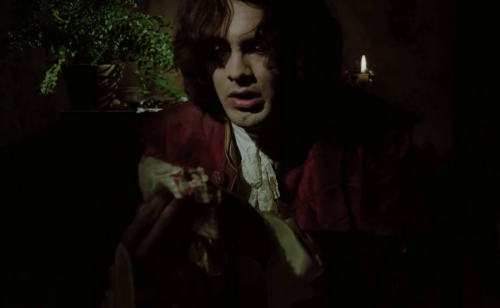 Heart of Glass (1976)
Heart of Glass (1976)A Bavarian town descends into destructive madness from the death of its master glassblower sometime during the 18th century; only a prophet (Josef Bierbichler) understands what's happening. Manias and mysticism languidly lead to tragedy in Herzog's genuinely odd period drama.
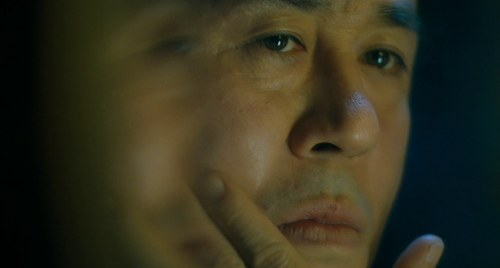 I Saw the Devil (2010)
I Saw the Devil (2010)An officer of Korea's National Intelligence Service (Byung-hun Lee) encounters numerous homicidal lunatics when tracking the one (Min-sik Choi) who butchered his pregnant wife. As gory, well-plotted, and viscerally gratifying as action pictures come, this revenging thriller's staged in terrific exteriors and interiors alike. If cutscenes in video games were acted and choreographed well, they'd probably be comparable to this.
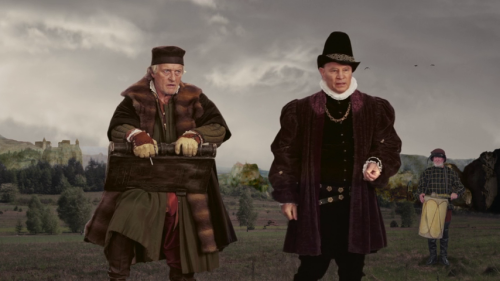 The Mill and the Cross (2011)
The Mill and the Cross (2011)Master painter Pieter Bruegel the Elder (Rutger Hauer) plans and expounds on his masterwork The Way to Calvary, inspired by Christ's crucifixion and Spain's religious oppression in his native Flanders during the 1560s. Tableaux vivants and potently, largely unspoken histrionics illustrate deathless creation borne from misery.
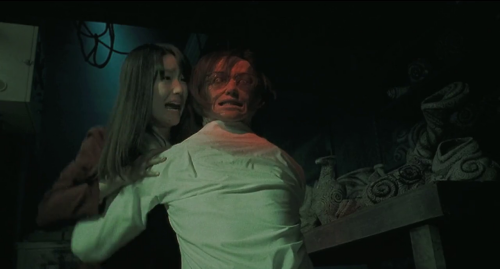 Uzumaki (2000)
Uzumaki (2000)Residents of a small town obsess over spirals, commit suicide, and transform into giant snails. That's the substance over which style predominates in Higuchinsky's consistently funny, almost incomparably weird adaptation of Junji Ito's popular manga, both of which are highly recommended for potheads and other fans of humorous surrealism.
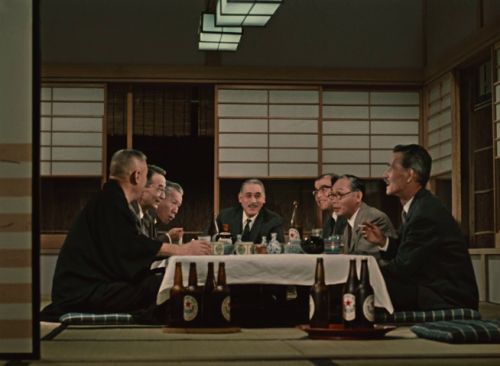 An Autumn Afternoon (1962)
An Autumn Afternoon (1962)Ozu's final film relates the leisurely efforts of a middle-class widower (Chishu Ryu) to find a respectable suitor for his young daughter (Shima Iwashita) while fraternizing with old schoolmates (Nobuo Nakamura, Ryuji Kita, Tsuzai Sugawara, Masao Oda) and his elderly former professor (Eijiro Tono) of Chinese literature. Their knack for pinpointing the tragedies behind what seems mundane or amusing was well-honed by Ozu and his co-screenwriter Kogo Noda at this late date, after which only a few filmmakers depicted the trials of life with such elegant and elegiac gentility. Stunningly gorgeous Mariko Okada is well-cast against type as the petty, shrewish wife of the patriarch's eldest son (Keiji Sada). Were this list ordered objectively, this title would top it.
A dearth of sleep and difficult interviewees complicate the investigation of a Swedish detective (Stellan Skarsgard) and his ailing partner (Sverre Anker Ousdal) into the death of a teenage girl in an Arctic, Norwegian town where daylight is constant. Shot, cut, and acted with frigid precision, Erik Skjoldbjaerg's crime drama relies as much on fortuity as his protagonist's foibles and skill to advance his plot. Christopher Nolan's well-shot but ultimately hokey remake can't compare.
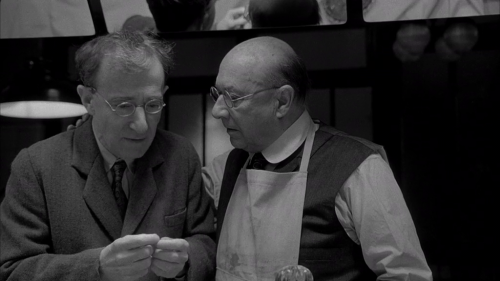 Shadows and Fog (1991)
Shadows and Fog (1991)Most of the substance in Woody Allen's play Death was excised in favor of more humor and fewer existential monologues, here gamely played by a cast packed full of notables. Alas, his production overspent on sprawling, detailed sets as backdrops of his quasi-impressionist style, and this movie's flop ended his long, productive film deal with moribund Orion.
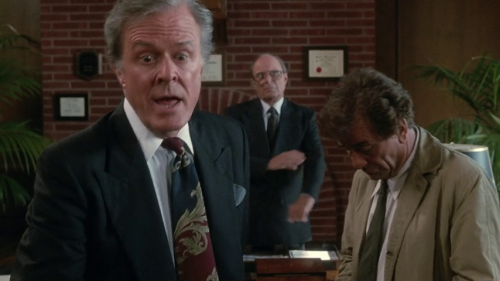 Columbo Goes to College (1990)
Columbo Goes to College (1990)Two privileged collegians (Stephen Caffrey, Gary Hershberger) who've exhausted the patience and clemency of their prestigious fathers (Robert Culp, Alan Fudge) ingenously ice their professor (James Sutorius) of criminology after he confronts them for cheating on an exam. As usual, they're convinced at first glance that the seasoned, slovenly detective (Peter Falk) assigned to investigate their seemingly untraceable felony is a moron. This episode is genuinely puzzling for its murder's partially disclosed execution and technological repercussions, which initially baffle everyone involved. As a high-powered attorney exasperated with the seemingly witless gumshoe, Culp's seething spirit is fun to watch once more in the program's second series.
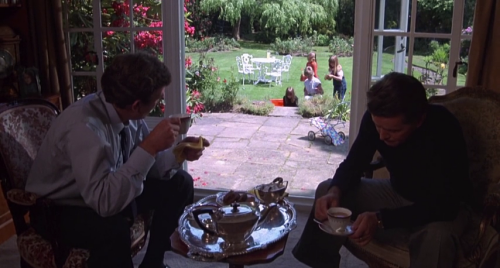 Loophole (1981)
Loophole (1981)A safecracker (Albert Finney) recruits a desperately unemployed architect (Martin Sheen) into his crew to perform a subterranean excavation, so to raid the safety deposit boxes in one of London's safest banks. An absence of gunplay or genre cliches sunk this engaging procedural, but never mind the popular and critical failure to recognize a good movie.
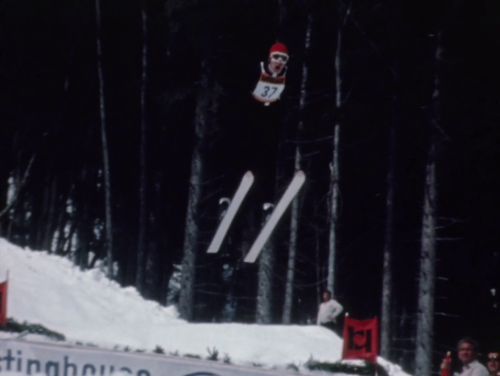 The Great Ecstasy of Woodcarver Steiner (1974)
The Great Ecstasy of Woodcarver Steiner (1974)Herzog appears onscreen for the first time, interviewing and documenting Swiss ski jumper and carver Walter Steiner as he sets three soaring world records. It's as evocatively eximious as most of the German auteur's documentaries in the '70s and '80s.
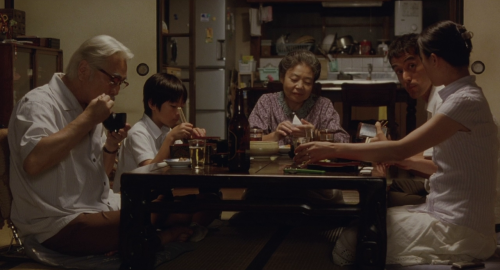 Still Walking (2008)
Still Walking (2008)Come summer, an unemployed art restorer (Hiroshi Abe), his new wife (Yui Natsukawa), and stepson (Shohei Tanaka) visit his parents (Yoshio Harada, Kirin Kiki) and sister (Yukiko Ehara) to enact and suffer a commemorative ritual in the shadow cast by his heroic older brother, now 15 years deceased. His semi-autobiographical drama dodges cliches in Kore-eda's honest depiction of mutual resentments, lingering dolor and disappointment, and a variety of familial troubles that feel as real as life, again.
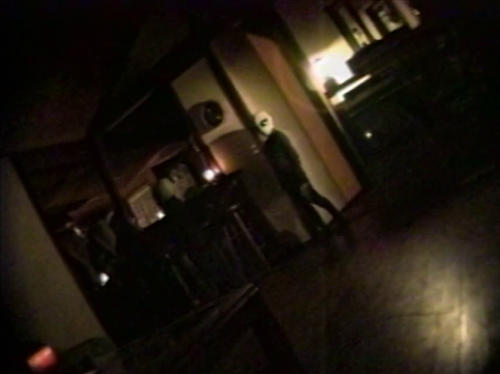 The McPherson Tape (A.K.A UFO Abduction) (1989)
The McPherson Tape (A.K.A UFO Abduction) (1989)Little space aliens land in rural California; fortunately, a family convoked for Christmas thought to videorecord this extraterrestial invasion as they're assailed by the diminutive, inhuman telepaths! All Dean Alioto needed to entertain fans of no-budget video was a camcorder, $6,500, and the cooperation of friends and family, a few of whom can actually act! If you love genre movies shot by amateurs for fun, this is a genuine delight.
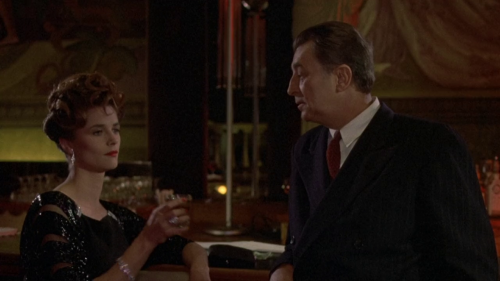 Farewell, My Lovely (1975)
Farewell, My Lovely (1975)In noirish Ellay, private dick Philip Marlowe (Robert Mitchum) encounters no few wealthy and impoverished unfortunates while employed by a hulking ex-con (Jack O'Halloran) to locate his elusive sweetheart. For Chandler's loyal readers and newcomers alike, it's a treat -- rough, funny, and gritty in every scene.
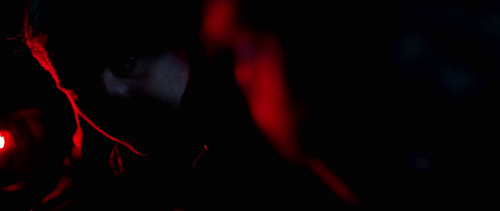 Kill List (2011)
Kill List (2011)Middle-class hitmen (Neil Maskell, Michael Smiley) aren't fully prepared for a contract that brings them to eerily receptive targets, then the horrifically morbid cult that employed their services. Ben Wheatley indued his arguably best movie with black humor, gobs of grue, and realistically staged violence that's equally fit for enthusiasts of action or horror.
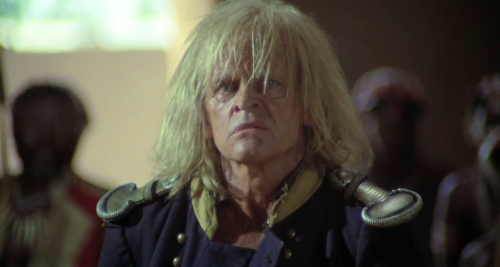 Cobra Verde (1987)
Cobra Verde (1987)A brutish enforcer (Klaus Kinski) in the employ of a Brazilian plantation's baron (José Lewgoy) beds and impregnates his boss's foxy mulatta daughters with even more enthusiasm than he wrangles his slaves, so he's shipped to west Africa to revive a defeated Portuguese colony scathed by savage, warring tribes. Their last collaboration finds Kinski as charismatically crazed as ever in Herzog's lively, observationally barbaric fictionalization of the European slave trade during its final years.
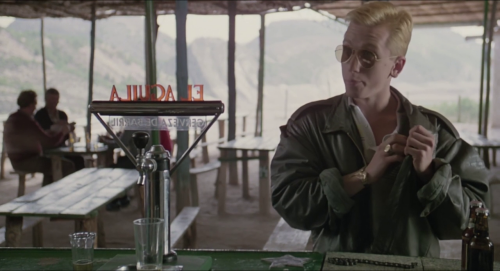 The Hit (1984)
The Hit (1984)Rural Spain is where a frigid himan (John Hurt) and his wildly demented protege (Tim Roth) abduct a nonchalant informant (Terence Stamp) with the intention of plugging him in France, but everything goes wrong. Great performances and existential implications make this Stephen Frears's best flick by a long shot.
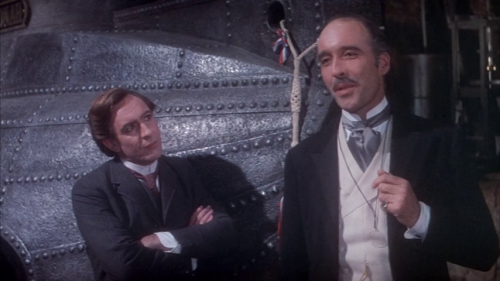 The Secret Life of Sherlock Holmes (1970)
The Secret Life of Sherlock Holmes (1970)It's no Seven-Per-Cent Solution, but Billy Wilder's cheeky treatment of Holmes (Robert Stephens) and Watson (Colin Blakely) while investigating the supposedly amnestic wife (Genevieve Page) of a Belgian mining engineer is full of twists and laughs -- despite a despondent conclusion.
Abandoned by his irresponsible father (Jeremie Renier), a wayward orphan (Thomas Doret) seeks love from and shelter with a hairstylist (Cecile de France) who's scarcely prepared to receive him. Recent attempts by the Dardennes to address neglect and delinquency in Belgium seem ham-fisted compared to this, one of their best portrayals of troubled minors.
Phonomaniacal Mayan soldiers decimate a peaceful village and transport for human sacrifice a few survivors (Rudy Youngblood, Jonathan Brewer) of their raid; their escape is a breathless adventure through a dense, hostile jungle. Mad Mel's sprawling, evocative fictionalization of that morbid, bloodthirsty, South American civilization that was built to last but doomed by an interminable preoccupation with death has been criticized for conglomerate inaccuracies, but there's no denying the proficiency of his dynamic direction, or the irresistable vivacity of his Mayanophonic cast.
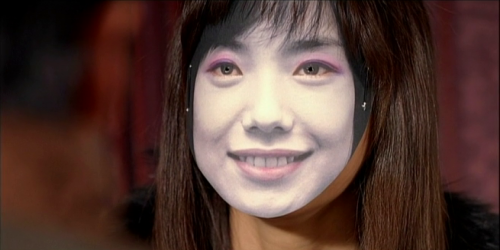 Time (2006)
Time (2006)Vanity, jealousy, and insanity provoke a madwoman (Hyun-ah Sung) to commission a surgical transformation of her appearance so to seduce her lovelorn boyfriend (Jung-woo Ha) as a different woman, to catastrophic consequences. As scathing and imaginative a commentary on South Korea's tireless appetite for cosmetic surgery as one could expect, Ki-duk Kim's cinematic condemnation for the trend's excesses in the context of mental illness hits indelibly hard.
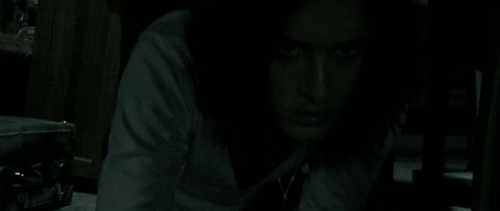 Them (2006)
Them (2006)Yes, the French can turn out suspense once or twice each decade. Married French expatriates (Olivia Bonamy, Michael Cohen) domiciled in Romania are systematically terrorized by a largely unseen group who've more guile and familiarity with their grounds than their victims. This pic isn't quite as good as The Strangers, which it prefigured by two years.